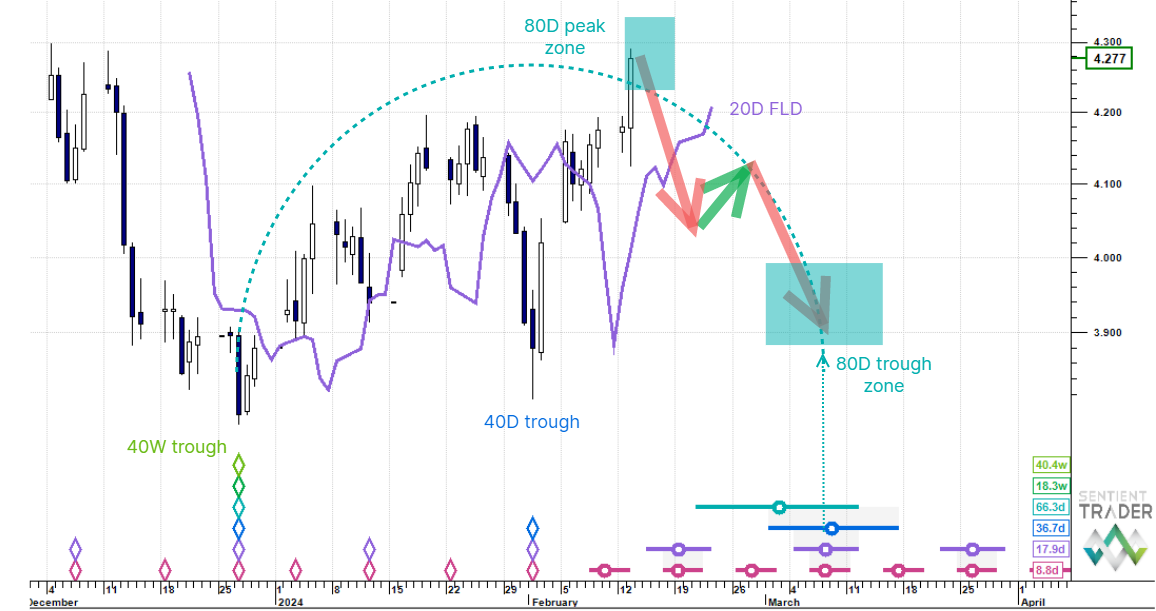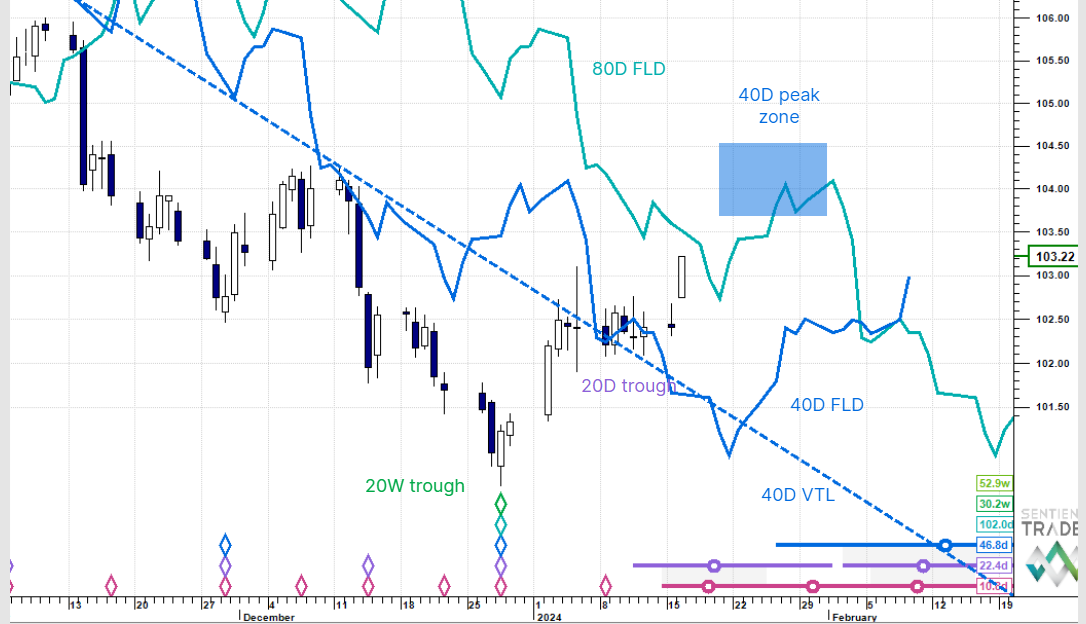Providing a little more historical background to the Sentient Trader project, here is a very early post to the original Sentient Code blog. The post explains some of my personal motivations in creating the project which has evolved into Sentient Trader.
This was originally posted on 5 June 2008:
I’ve been trading for over 15 years, and I’ve traded many things, including shares in South Africa, shares in the US market, futures on the S&P500 and Nasdaq, currencies, single stock futures, and so on. Trading fascinates me.
The Potential of Trading
Trading offers the potential, if one knows what one is doing of providing a perpetual source of income. I say “if one knows what one is doing”, because I have learnt the lesson of “not knowing” the hard way (one day I’ll tell the story of how I lost $5,000 in a single day). And after spending a good deal of the last 15 years studying everything I could find about how to trade “knowingly”, I do believe that I’ve found a way of doing it. This “way of doing it” is what I call “The Trading Theory”.
The Trading Theory
This is a trading theory inspired by the original work of JM Hurst, who studied cycles in the stock market (in the late 1960’s and 1970’s). I have added to the theory some extra details, and I believe the theory works (in other words one can make money by trading it) … I have spent a lot of time studying it, looking at it from every angle, and I still believe it works! So what’s the catch? The catch is that this is not a simple theory. It’s not a get-rich-quick theory. It is complicated, and involves several “barriers to entry”:
- a lot of mathematics
- some pretty complicated data crunching (also mathematical, but involving some additional ideas like spectral analysis)
- a willingness to overlook the “why does this happen?” question, which many people find difficult.
- the necessity of applying a visual pattern-recognition ability.
- the applying of a specific logic which takes a while to grasp, and a pretty long time to master.
So in order to do all these things, and really put the theory to the test, I am creating the software which this blog is all about. To really do the trading theory justice one needs something to help one overcome the barriers I’ve described above, and I think software is just the right thing.
The Problem with Trading
I have many friends who “trade”, in which description I include those who buy stocks and shares for longer term invetsment. Trading is pretty easy to get into – open an account somewhere, pick a share/currency and then buy it! All too often I believe people get into trading (or longer term investing) without knowing what they are doing, and often do really well for a while (sometimes even years). But then just when they think they know it all, they start losing money, and before they do know it all they’ve lost everything they made in the first place, plus a bit more.
Why does this happen time and again? Because people who trade (or invest) in this way don’t actually know what they’re doing. I know that’s harsh, but most of the time it’s true. There is a well-known saying in the trading world: “don’t mistake a bull market for your own genius”. If you buy shares in a bull market (which is a rising market) they are pretty much bound to go up. If you then make the mistake of thinking that it was your genius that guided the choice of share, or the time at which you bought the share, then when the market turns into an angry bear (as is happening pretty much worldwide at the moment) and starts falling, you’re going to suddenly realise how little you actually do know.
My favourite question to friends and people I meet who also trade is: “what guides your buying and selling decisions?” Would you believe me if I said that most people don’t really have a “theory” they work with? They listen to other people’s opinions on the radio and TV, and vaguely make a decision based on their “gut feel” about a share. Sure, some of the time they’re right, but let’s face it: some of the time they’re not! That’s all very well if it’s a hobby that amuses you, but if it’s your plan for the future, I think that is pretty disastrous. The way many people talk about trading reminds me frighteningly of the way gamblers speak about their gambling exploits: A gambler will phone their friends in great excitement on the occasion of a big win (a big party for all the friends, everyone talking about how the gambler has a “lucky gene”). But what happens when they lose money? Do they phone all those friends? Not likely, unless they need a loan, and so one tends only to hear about all the wins, and none of the losses. All too often I find that happens with traders I have met – great stories about making thousands of dollars in a few days, but not so many stories about the losers. The problem is I think those people are doing little more than gambling with their money. For their sake I really hope their lucky streaks hold good as the world markets twist and turn.
Most of them answer any concerns I express with the stock response of – “in the long run stock markets go up, even if it means you have to wait a little longer”. I must say I think that idea has run its course – there is no rule anywhere saying that stock markets cannot start going down, and keep going down. And even if a market always has to turn back up again, what if it only happens in 80 years time? Might be a little late to enjoy the upturn! I’m a keen reader of Robert Prechter’s The Elliott Wave Theorist in which he often discusses spurious ideas such as the belief that stock markets must inevitably go up. If you’re interested in trading well, I highly recommend his newsletter – you might not agree with all his ideas, but it’s always good to question one’s own beliefs now and then.
The Challenge
And so for me the challenge is to trade in a way that can be genuinely defined as “knowing what you’re doing”. Obviously everyone has their own idea about what that means – and this project is my own personal quest to find the solution to that question. Perhaps I should say “to express the solution”, because I believe I have found it already, I just need to find a way of expressing it so that others can use it and benefit from it. I would love for all my friends, acquaintances, and many others to use my software to make themselves wealthy, because that is what it’s all about – sharing the knowledge of how to trade.
It would be so much better than hearing that friends have bought shares in a stock that I’m convinced is going down … but tact prevents me from saying anything. I think the time for tact has passed.
My background
I came to trading in an unusual way, which might inform my readers a little! I knew the stock market existed, but it never held any interest for me because it all sounded like serious business, and my only awareness of it was when the closing prices of many shares were announced on the radio in South Africa. It all sounded so boring. I admired the way the radio DJ’s would vary their tone of voice as they announced each share price so that it didn’t sound too monotonous, but inevitably my mother would change the station to something musical, and that would be it.
But then I developed a strong interest in gambling games – roulette, blackjack and the horses. I know one’s not meant to mention gambling and stock market trading in the same breath but I’ve done it twice (or three times) now in one blog, and the reason is that I believe the two do have many connections. What fascinated me about the gambling games was the mathematical side of things – the concept of probability and the statistics of chance. A wonderful book called Thirteen Against the Bank by Norman Leigh inspired me to team up with a friend and “beat the bank” but that’s another story for another time (the system doesn’t actually work mathematically – I guess Norman and his team were lucky). When researching a theory I had about the potential of making money out of statistically based bets placed on the Horse Racing pools (again another story altogether…), I came across the concept of time series, and ended up reading a book about the technical analysis of stock market prices. I was immediately hooked, and have spent the last 15 years reading pretty much everything I can on the subject. My particular interests are technical analysis (perhaps that’s obvious!), but more particularly the fields of Elliott Wave analysis, and Cyclic Analysis (with emphasis on the work of JM Hurst, and those who have followed him).


